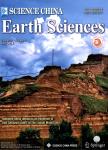Monitoring of regional drug abuse through wastewater-based epidemiology—A critical review
Monitoring of regional drug abuse through wastewater-based epidemiology—A critical review作者机构:Anti-Drug BrigadeBureau of Public Safety School of Environment and Natural Resources Renmin University of China Laboratory of Earth Surface Processes College of Urban and Environmental Sciences Peking University
出 版 物:《Science China Earth Sciences》 (中国科学(地球科学英文版))
年 卷 期:2018年第61卷第3期
页 面:239-255页
核心收录:
学科分类:1007[医学-药学(可授医学、理学学位)] 10[医学]
基 金:supported by the National Natural Science Foundation of China(Grant Nos.41371442&41671492)
主 题:Drug abuse Monitoring Wastewater-based epidemiology Review
摘 要:Wastewater-based epidemiology is a new approach to monitor drug abuse. It involves collecting wastewater, analysis of residues of drugs or its metabolites in wastewater, and back-calculation of drug consumption by taking into account wastewater flow, stability of drug target residues in wastewater, and excretion rates of drugs/metabolites. Wastewater-based epidemiology has the advantages of being inexpensive and yielding more consistent and near real-time results. It has the great potential to supplement the existing drug monitoring methods. It can be used to build large-scale(regional, national, or even continental) monitoring networks that would yield spatial patterns and temporal trends in drug abuse. This paper described in detail the principle and procedures of this wastewater-based approach. Application of this approach across the globe was also reviewed. The uncertainties involved in the approach and knowledge gaps were identified. Finally, necessity, benefits, and feasibility to set up nation or province-wide monitoring networks based on wastewater analysis in China were discussed.



